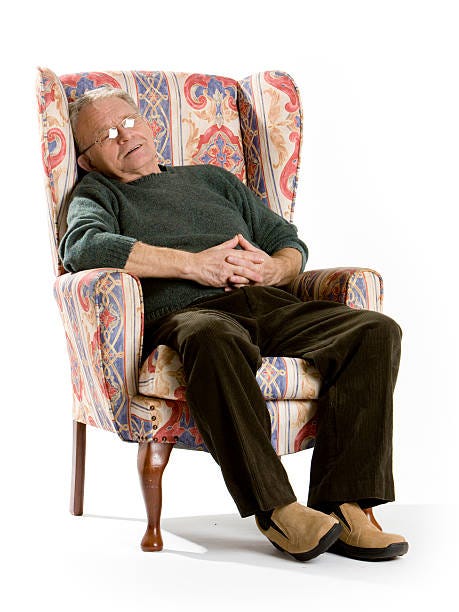Port Medway, Nova Scotia, September 2, 2023
I just want to bake
Many of us have spent our adult lives assiduously building a career résumé. This is an important part of our autobiography, an implicit list of opportunities lost and mistakes made, for sure, but also an explicit list of achievements, each one building on the ones that went before. This résumé helps define our identity and gives us a sense of our place in the world.
One day old age arrives, the telephone stops ringing, the email invitations dry up, and no-one asks your advice about anything anymore. Then, as you sit in an easy chair and gaze out to sea, you can take solace in nostalgically reviewing your résumé in your mind’s eye, thinking happily of what once was. Yes, you muse, between naps, once I was a contender.
Some say that a curriculum vitae is a trap, particularly if it’s impressive (the more impressive the CV, the bigger the trap). Forget about your résumé. Liberate yourself from the constraints of who and what you once were. Abandon your old identity. Exchange it for something better. It’s time for something completely different.
In a recent article in The Atlantic, David Brooks tells of a Stanford University program for adults who have retired and are wondering what to do next (several universities have programs like this). The director of the Stanford program tells his students to throw away their résumés: “That’s no longer who you are. That’s not going to help you.” Brooks recounts the reaction of one of these students: “Okay, nothing I’ve done matters. Everything I do going forward has to be different.” This person had been a federal prosecutor and became a playwright. “It’s all about putting myself in situations in which I know nothing,” she said. “I can fail big. Who gives a shit? I’m 64.” Another had been a professor at the University of Chicago and wanted to open a bakery. “I don’t want to run it. I just want to bake.”
Brooks acknowledges that he’s preaching to the “super-elite,” the affluent whose “lives are a million miles away from the great bulk of humanity.” The problem for most people is not how to go from prosecutor to playwright, or professor to baker, but how to pay the electricity bill. But Brooks argues that the lessons learned by the super-elite at Stanford and elsewhere apply generally: “People at all income levels derive some of their identity from how they contribute to the world and provide for those they love, and people at all income levels feel a crisis of identity, and get thrown back on existential questions, when those roles change or fade away.” What Brooks doesn’t tell us is how someone with modest means and limited options is supposed to throw off the shackles of the past.
Of course, not everyone wants to throw off those shackles. Many people are perfectly content to sit with the identity they created over a lifetime, provided there’s a little golf on the side and an occasional trip to Florida. Who can fault them?
My wife reminds me that we don’t just have career résumés. We have many other kinds, including emotional résumés. We are trapped, not only by the careers we’ve had, but also by the ways of thinking, feeling, and behaving that we have developed over a lifetime. She reminds me, it’s never too late to try and change some of that.
P.S. An Endgame reader, a distinguished scholar and advocate for the disabled, commented on Newsletter #36 (Jewface): “I read Jewface with considerable interest. In my field, that of disability research, there is also a growing sense by many that cultural appropriations, including any public representation of a person with a disability (PWD) by an individual without a disability (IWOD), are simply not acceptable… However, I agree with your recommendation within the context of antisemitism; that what is needed is a sensible and precise analysis of what constitutes unacceptable behaviour. Perhaps one set of boundaries that could be shared among these and other groups would be any instance of representations that purposefully or negligently denigrates the group or individual so represented or where false claims lead to personal benefit.”





Another relatable post! Even in one's elder years this can come up. I spent 20 years working in a voluntary capacity for a regional environmental organization. At 73 I developed cancer. Because it was during the Covid emergency and to get treatment in the next state, which had a closed border, I ended up relocating across the border, and am now living in a large suburb. I'm in remission with hopefully a few years left. But who am I now? Still working that out.
There’s a pithy line from ancient times, which goes: Neti, Neti, Neti. Loosely translated, it means: Not this, not that, nor that …
For me, it signifies a process of unlearning.
Towards that goal, I’m off next week to walk the Camino in northern Spain, hoping at least temporarily to vacate my mind.